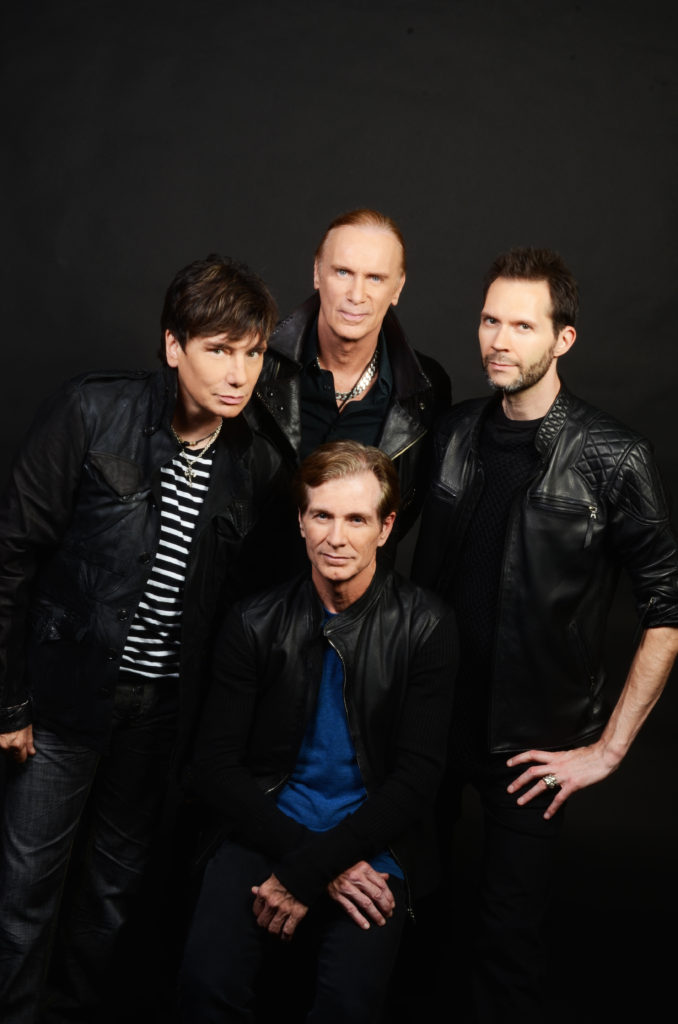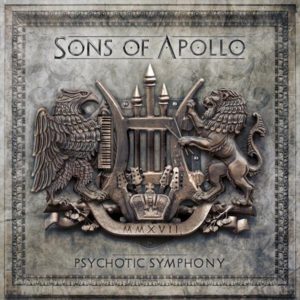 In our current spoiler alert society, there aren’t very many surprises left. For guitarist Ron “Bumblefoot” Thal, 2017 brought about one very big eureka moment – the mainstream success of his latest project, the progressive rock band Sons of Apollo.
In our current spoiler alert society, there aren’t very many surprises left. For guitarist Ron “Bumblefoot” Thal, 2017 brought about one very big eureka moment – the mainstream success of his latest project, the progressive rock band Sons of Apollo.
Comprised of Thal, former Dream Theater members Mike Portnoy and Derek Sherinian, Mr. Big founding member Billy Sheehan, and ex-Journey vocalist Jeff Scott Soto, the supergroup released their first album, “Psychotic Symphony” on October 20 and saw it debut at #1 on Billboard’s “Heatseekers” Chart, not at all what Thal expected when he thought they would churn out an album that “musician fans and friends” would enjoy.
We recently sat down with the renowned guitar hero to discuss what keeps him in the music biz, the reason he gravitates towards collaborations, and why he refuses to go half way on any project he commits himself to.
TrunkSpace: So often we hear, especially nowadays, about the negative impact of being in the public spotlight, but we have to imagine that for a musician, hearing how you positively impact fans is a driving force to keep going forward. Is that true with you and your career?
Ron “Bumblefoot” Thal: It’s definitely a driving force. Absolutely. Most of the time I want to stop. I want to stop being a musician, and I hate the music business, and I just want to do something else with my life. And then I’ll get a message from somebody saying that what I did helped them and meant something to them, and I realize that that’s why I do this, and it’s so easy to forget that. But that is why we do what we do.
TrunkSpace: You mention the occasional desire to leave the music business. Are you somebody who has to step away and refuel the tank between projects to then get that creative spark back?
Ron “Bumblefoot” Thal: I think so. And I think that I need to live life for a while – experience life – have stories that I feel are new stories to tell, and then I can do it. If I was gonna sit in the studio every day, I don’t know if that would work. I don’t know if being an output machine, just pumping out music daily, maybe would be even better, but I found that for most of my life I’ve needed to just live my life and then go and make some music.
TrunkSpace: Does that also apply to diversifying who you’re playing with and finding new voices to write alongside? Do your collaborations keep things fresh?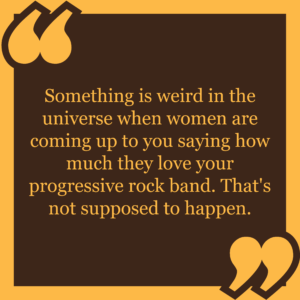
Ron “Bumblefoot” Thal: That definitely is a big part of it. I think collaboration is so important. And there’s only so much I can get out of myself, and I only have a finite amount of anything to offer. But when you’re working with someone else, each one of you has something the other doesn’t, and when you put the two together it’s almost like the result is bigger than the sum of both parts by themselves.
TrunkSpace: When you look at those various collaborations throughout your career, do you view them as different roads all intersecting, or are they the same road traveling along the same career path?
Ron “Bumblefoot” Thal: Good question. I guess they’re the same life path, but different things. I guess you could say they’re different movies. One is “Star Wars,” the other is “The Empire Strikes Back,” and the other one is “The Return of the Jedi.” But they’re part of the same collection in your life. And that’s the thing, everybody’s lives are connected and we’re all part of this web, so it’s not a linear thing. I think everything we do is more like we expand outward than going in one direction. I think we’re like a circle that keeps expanding.
TrunkSpace: And like anything in life, you get from those experiences what you’re willing to put in.
Ron “Bumblefoot” Thal: Oh sure, yeah. And, for me, I find that I need to immerse myself fully and go in deep. I have a very hard time just doing anything half way. I need to fully commit to whatever I’m doing while I’m doing it, whether it’s a band or whether it’s just producing or recording or my own albums or just doing a guest guitar solo for somebody. I need to really just fully commit.
TrunkSpace: Your latest project Sons of Apollo is filled with career musicians who have been at it for decades. Does working with that caliber of musicians provide a vibe of, everyone knows what they’re there to do and they do it. Does it make the process more efficient?
Ron “Bumblefoot” Thal: Well, definitely with Sons of Apollo, you have a bunch of people that are the same types of creatures on the same page. It works well. That’s the thing, like any relationship, it has to be a balanced one where… if one loves someone more than the other does, it doesn’t quite work out well. So, we’re all on the same level as far as things. And, for me, and I noticed for Jeff and Derek and all the guys, they’re the same way, they care 100 percent. They fully put their heart and everything into it. And I think that’s why it works. And what I’ve realized is that when you’re like that, you’re gonna do much better in a band than as a hired gun kind of guy. And I think that’s why I’ve had difficulties in the past when it was a hired gun situation – which I never was, I was never a hired gun player, I was always a band guy, always had bands, always had it either in my solo band or Art of Anarchy or now Sons of Apollo. That’s the kind of person I am, and that’s just how I operate. If it’s something where it’s just more like employment, I could maybe do it for a short time, but after a certain point I need more, and it hurts too much to not give more or to just be kept at that employee distance and not a partnership kind of thing.
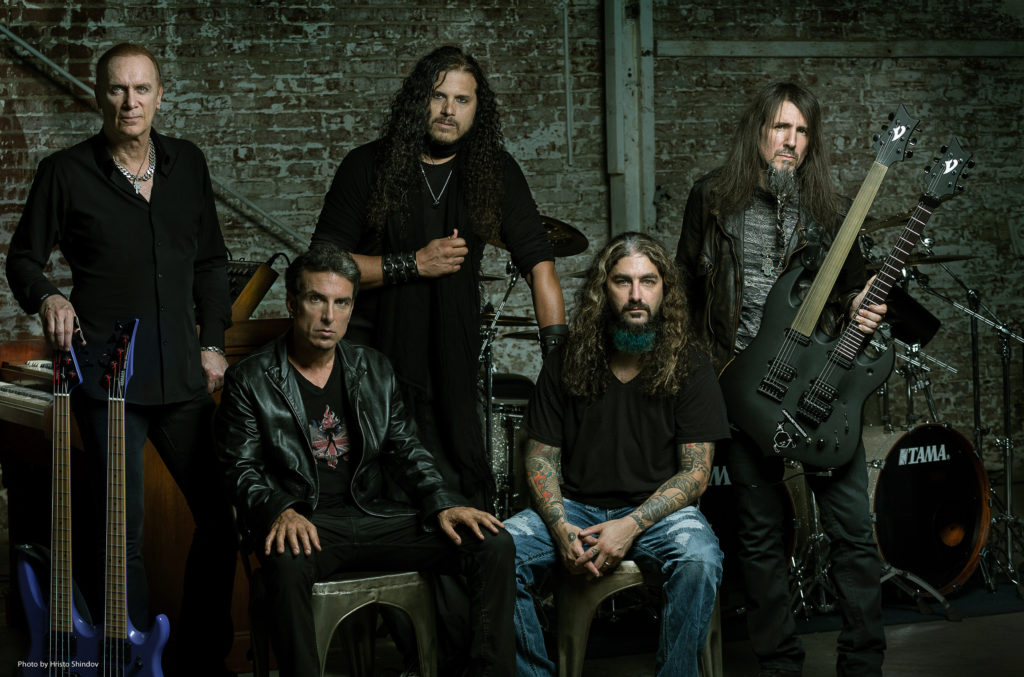
TrunkSpace: You knew the guys from Sons of Apollo for a long time. When you’re in that sort of relationship with other musicians, when do you know that a jam session is becoming more than that? Is it a bit unspoken at first, or does it just kind of happen?
Ron “Bumblefoot” Thal: You kind of know pretty quickly – it happens immediately. As soon as you start playing together you just have this comfort and there’s this mind reading thing where you’ll end up doing the same kind of feel with the same kind of accents at the same time, like you’re anticipating the same things and reading each other’s minds and instinctively just know what the other is gonna do. And a lot of times that just happens. It happens more often than not, I’ve found.
TrunkSpace: Where does “Psychotic Symphony” sit for you in terms of your own relationship with your music? Is it an album that in 20 years you’ll look back on and see as a career highlight, both as a songwriter, and just as the experience?
Ron “Bumblefoot” Thal: I think so. It’s funny, it’s not what I expected. Going from Art of Anarchy, which was radio rock, to Sons of Apollo, which is really like classic progressive hard rock… to me, Sons of Apollo I thought was gonna be more like something just for musicians, but it kind of blew up. Something is weird in the universe when women are coming up to you saying how much they love your progressive rock band. That’s not supposed to happen. Women are supposed to run in the opposite direction. (Laughter) And we would joke about that in the studio. We would come up with this crazy part in this weird time signature, and I would say something like, “We just lost two more female members of the audience.” (Laughter)
TrunkSpace: (Laughter) Life is all about expectations. When you have them tied to something, you tend to either be surprised or disappointed. Is part of the surprise with how well Sons of Apollo has been received because you had expectations?
Ron “Bumblefoot” Thal: Yeah. I went into it thinking we were just gonna bust out an album in 10 days, and that musician fans and friends would enjoy it, and that would be it, just for the sake of making an album, but then it took on a life. And here we are in 2018, we’re gonna be touring all year, and starting to write ideas for a second album. But that’s how it is, you never know what’s gonna happen. All you can do is just put stuff out into the universe and it takes on a life of its own, and you have to let it have that life and don’t hold it back, and support it.
“Psychotic Symphony” is available now from InsideOutMusic.
For Sons of Apollo tour dates, visit here.


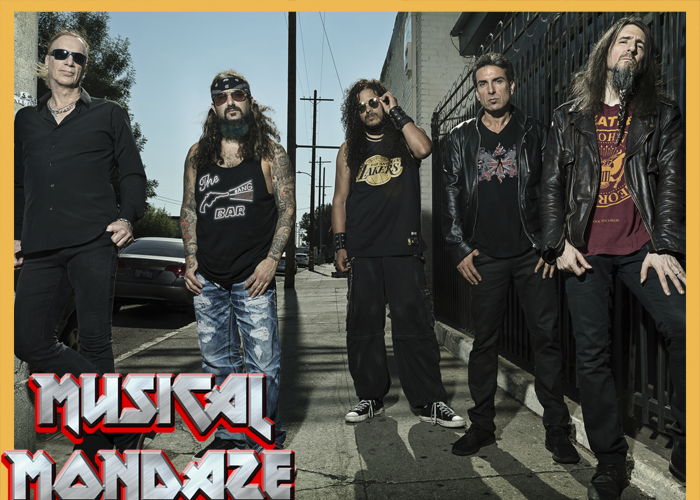

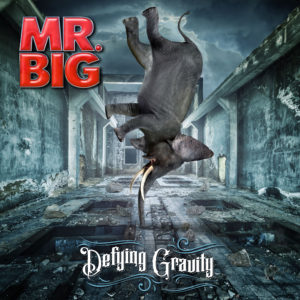 Anyone who listened to the radio in 1991 or watched MTV in the age of actual music videos has emphatically sung along with Mr. Big’s “To Be with You,” the hit single from their platinum-selling sophomore album “Lean Into It.” Nearly three decades later, the band is continuing to write, record, and tour the world and doing so on their own terms now that the music industry has been flipped on its head. Their ninth studio album, “Defying Gravity,” is set for release July 7.
Anyone who listened to the radio in 1991 or watched MTV in the age of actual music videos has emphatically sung along with Mr. Big’s “To Be with You,” the hit single from their platinum-selling sophomore album “Lean Into It.” Nearly three decades later, the band is continuing to write, record, and tour the world and doing so on their own terms now that the music industry has been flipped on its head. Their ninth studio album, “Defying Gravity,” is set for release July 7.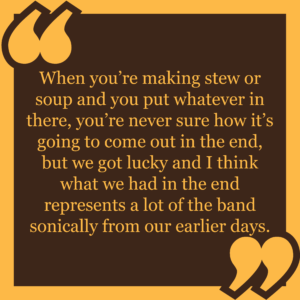 a lot of digital trickery in the studio. You can pitch correct vocals. You can punch in and punch out and fix timing and fix errors easily after the fact if you need to. We don’t rely on that. Occasionally once in a while there’s a thing that we just have to change. There’s no two ways about it. That ONE note… there’s no way that can stand, so we’ve got to go in and fix it, but… it’s a microscopic amount. We rely on what we do live and because of that live performance, and because it can’t be downloaded, we’ll always have something that we can do that is alive and fresh. And being in a room of your peers and people of like mind as an audience member and seeing a band that you love, that experience… you can’t do that in virtual reality. You can’t do that as a download. You’ve got to be there and you’ve got to see it and smell it and feel it. That’s what we do. That’s what we’ve always done, so in spite of everything changing around us, fortunately it has kind of come back to a situation where the thing that we do best, in my humble opinion, or the thing that we love best rather… is the thing that’s really happening today in many ways.
a lot of digital trickery in the studio. You can pitch correct vocals. You can punch in and punch out and fix timing and fix errors easily after the fact if you need to. We don’t rely on that. Occasionally once in a while there’s a thing that we just have to change. There’s no two ways about it. That ONE note… there’s no way that can stand, so we’ve got to go in and fix it, but… it’s a microscopic amount. We rely on what we do live and because of that live performance, and because it can’t be downloaded, we’ll always have something that we can do that is alive and fresh. And being in a room of your peers and people of like mind as an audience member and seeing a band that you love, that experience… you can’t do that in virtual reality. You can’t do that as a download. You’ve got to be there and you’ve got to see it and smell it and feel it. That’s what we do. That’s what we’ve always done, so in spite of everything changing around us, fortunately it has kind of come back to a situation where the thing that we do best, in my humble opinion, or the thing that we love best rather… is the thing that’s really happening today in many ways.